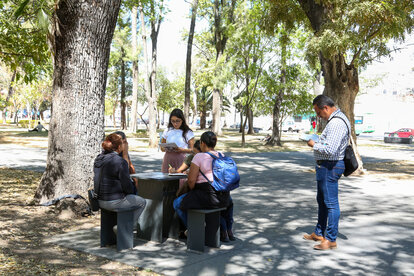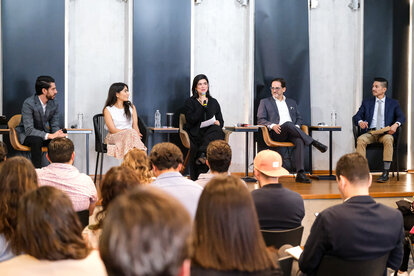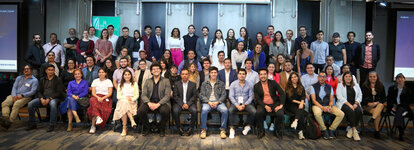Smart Cities
The future of public spaces

What is the future of public spaces? How does urban law influence the improvement of regulatory frameworks? Why is public innovation necessary? How can citizens contribute to decision-making on the direction of our cities?
Last February 21st and 22nd, the Friedrich Naumann Foundation for Freedom organized together with Visor Urbano and the General Coordination of Government Innovation of the state of Jalisco the first Forum on Digitalization of the Territory. The event was a space in which different voices from academia, students, decision makers, public officials and members of the real estate sector coincided to question and propose joint solutions to the most urgent challenges in the transformation of cities.
If anything was clear, it is that cities are living entities that are constantly transforming. For most of the attendees, smart cities must stand out for their resilience, accessibility, connectivity, transparency, security and sustainability. Furthermore, if cities are not centered on the people who live in them, it is difficult for them to be inclusive cities with successful policies.
In this sense, the Visor Urbano project is key to promote cities that, through technology, knowledge of legal frameworks and its user-centered approach, promote public innovation, with open and transparent governments that also reduce corruption.


With the participation of different experts such as Louise David from the Alliance for Urban Regeneration; Robin Abad Ocubillo from Shared Spaces San Francisco, CA; Salma Jalife, from Centro México Digital; Kay Bodden from the Department of Environment of Puerto Cortés, Honduras; Luciana Renner, director of Placemaking Mx; Javier de la Fuente, from Ordenamiento y Desarrollo Urbano de San Pedro Garza García, NL; as well as public officials from the state government of Jalisco, one of the most important conclusions of the forum was that urban law is key, and that development plans can only be successful if legislation is updated and technology is used in conjunction with citizen participation.
In this sense, the analysis of public spaces plays a key role. The workshop on the future of public spaces by Robin Abad provided an opportunity to learn strategies for the analysis of public spaces through observation and surveys of users of public spaces. By interviewing different people in the public parks of downtown Guadalajara, it is confirmed that cities are only smart if it is smart and safe for those individuals to live there. Crucially, the groups that use these spaces as recreational places on work days are mostly older people who have not been able to find employment. Surveys and analyses thus indicate not only an improvement for the users of the space, but also point to an additional problem concerning this population and the lack of employment for them.
Innovation in our cities requires 3 main actors. First, citizens and civil society organizations that seek to solve the challenges we face every day. Secondly, actors that coordinate innovation processes and generate policy in its purest definition as a space for discussion and decision making. Thirdly, facilitators who can support the financing of long-term strategies.
In the Klima Project of the Friedrich Naumann Foundation for Freedom, we seek to make it possible to promote smart cities through the participation of different actors and the strategies that, like Visor Urbano, are being implemented to promote open and transparent governments.

